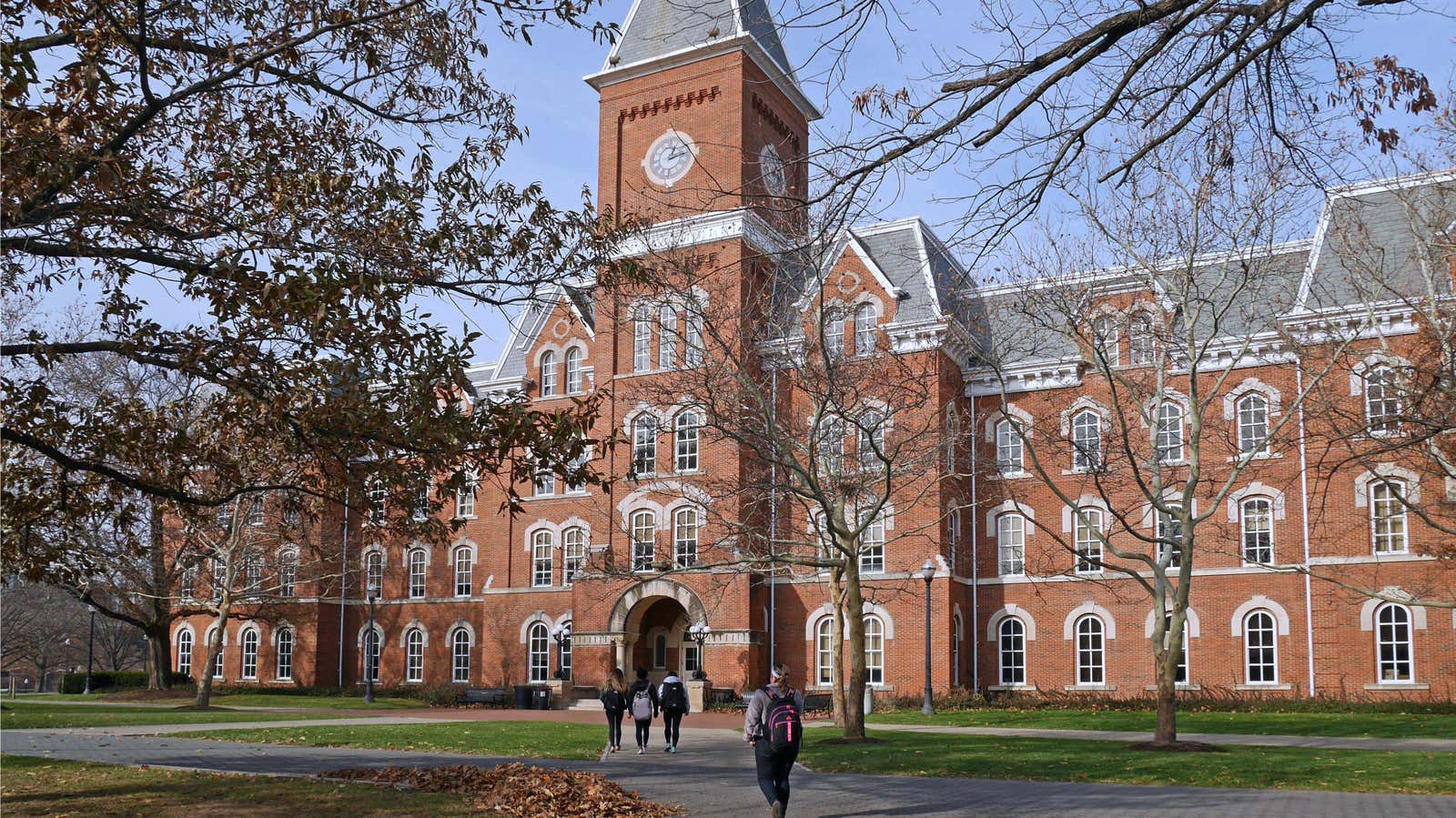Why You Shouldn’t Trust the US News Best College Rankings

The ubiquitous US News college rankings attempt to answer the inherently subjective question, “Where should I go to college?” – exact numbers. While this is an admirable goal to some extent, the resulting list is far from objective and should certainly not be decisive in your college selection process.
To create its annual list, US News collects a bunch of college data and uses it to calculate a weighted score, with different categories of data (or “ranking factors”) given different weights. (For reference, US News decides how much to weight each factor and why.) These weighted scores are then sorted into a ranked list for comparison purposes. You can read the details of the ranking methodology on the US News website if you’re interested, but prospective students (and their parents) all you need to know is which three factors matter most to US News rankings: Graduation and Level retention is 22% of the total score, while undergraduate academic reputation and faculty resources receive 20% each. Ranking these three factors above all others, including financial resources per student (10%) and alumni debt (5%), tells you everything you need to know about the limitations of this ranking system. That’s why.
Rankings tell you nothing about student experience
Ultimately, the point of going to college is to get a degree, so it makes sense that the number of graduates affects rankings so much. But the number of graduates does not reveal the whole picture, especially when they are given priority over other factors that reflect the quality of student life. ( The US News ranking factors consider class size and student-to-faculty ratios, but as part of faculty resources; interestingly, the financial resources per student factor does not include such subcategories.)
Special attention to the number of graduates should be the biggest takeaway for prospective students. An academically rigorous school with high graduation and retention rates can be a great place to study for four years, or it can be a pathetic high-stress pressure cooker that you can barely handle and the ratings can’t tell the difference between the two. If you want to get an idea of the school environment and lifestyle, you’ll have to do your own research.
Prestigious private schools always on top
The other two factors in the “Big Three” – teaching resources and undergraduate academic reputation – also make it difficult to fully trust the rankings, as they inherently favor expensive private schools. With regard to faculty resources, it is easy to see why: the more money an institution has, the more resources are available to its faculty; consequently, the wealthiest schools score the highest. But the undergraduate reputation factor, which is entirely determined by peer surveys, is just as unreliable. Here’s how US News describes it on their website :
In a peer review survey, US News asks the president, provost, and dean of admissions at each school to rate the quality of academic programs at schools in the same ranking category, including their own. Those who are unfamiliar with a particular school are asked to tick the “Don’t know” box.
In other words, as many as 20% of the school’s scores come from data provided by high-level administrators themselves, including their own. It’s not hard to see how this works in practice: prestigious (and expensive) private schools already have the most recognition and the best reputation, which certainly benefits them when it comes to external peer review. Since these schools also have a strong interest in maintaining their reputation, they also rate themselves highly.
To the credit of US News, they admit that their rankings are not the end point of college decision making. But given the impact they have in the world of higher education, it’s easy to argue that they are. Your job as a prospective student is to find the right college for you . US News ratings can be flawed, but once you understand their bias, they can be a useful tool. Just make sure your decision is based on the factors that matter to you, whether or not US News takes them into account: the school’s location, price, extracurricular programs, and overall atmosphere will affect your school experience just as much, if not more. than the list of factors that are included in its “official” rating.